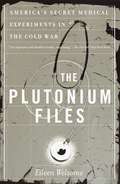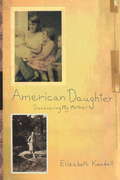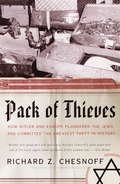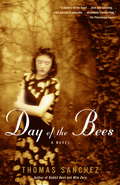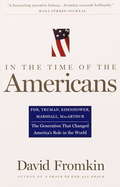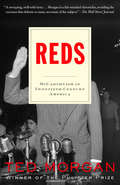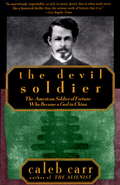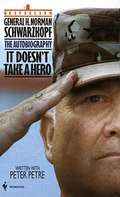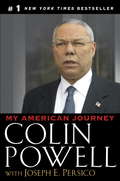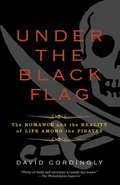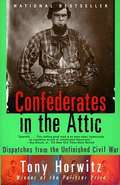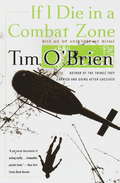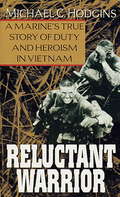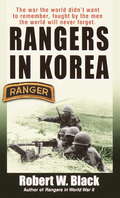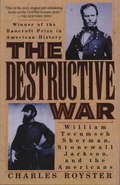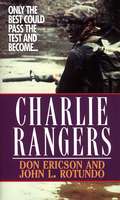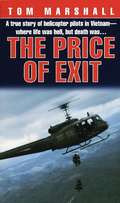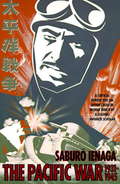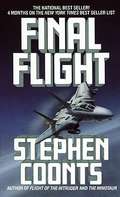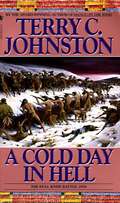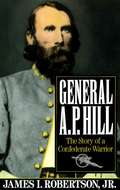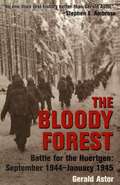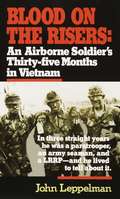- Table View
- List View
The Plutonium Files: America's Secret Medical Experiments In The Cold War
by Eileen WelsomeWhen the vast wartime factories of the Manhattan Project began producing plutonium in quantities never before seen on earth, scientists working on the top-secret bomb-building program grew apprehensive. Fearful that plutonium might cause a cancer epidemic among workers and desperate to learn more about what it could do to the human body, the Manhattan Project's medical doctors embarked upon an experiment in which eighteen unsuspecting patients in hospital wards throughout the country were secretly injected with the cancer-causing substance. Most of these patients would go to their graves without ever knowing what had been done to them.Now, in The Plutonium Files, Pulitzer Prize-winning reporter Eileen Welsome reveals for the first time the breadth of the extraordinary fifty-year cover-up surrounding the plutonium injections, as well as the deceitful nature of thousands of other experiments conducted on American citizens in the postwar years. Welsome's remarkable investigation spans the 1930s to the 1990s and draws upon hundreds of newly declassified documents and other primary sources to disclose this shadowy chapter in American history. She gives a voice to such innocents as Helen Hutchison, a young woman who entered a prenatal clinic in Nashville for a routine checkup and was instead given a radioactive "cocktail" to drink; Gordon Shattuck, one of several boys at a state school for the developmentally disabled in Massachusetts who was fed radioactive oatmeal for breakfast; and Maude Jacobs, a Cincinnati woman suffering from cancer and subjected to an experimental radiation treatment designed to help military planners learn how to win a nuclear war. Welsome also tells the stories of the scientists themselves, many of whom learned the ways of secrecy on the Manhattan Project. Among them are Stafford Warren, a grand figure whose bravado masked a cunning intelligence; Joseph Hamilton, who felt he was immune to the dangers of radiation only to suffer later from a fatal leukemia; and physician Louis Hempelmann, one of the most enthusiastic supporters of the plan to inject humans with potentially carcinogenic doses of plutonium. Hidden discussions of fifty years past are reconstructed here, wherein trusted government officials debated the ethical and legal implications of the experiments, demolishing forever the argument that these studies took place in a less enlightened era. Powered by her groundbreaking reportage and singular narrative gifts, Eileen Welsome has created a work of profound humanity as well as major historical significance.From the Hardcover edition.
American Daughter
by Elizabeth KendallIn this beautifully crafted book, Elizabeth Kendall tells the story of a family, of a passionate attachment between a mother and a daughter and the sudden tragedy that tears it apart. American Daughter is also a brilliant portrait of wellborn women's lives in cities and towns in the post-World War II era, as Kendall evokes how difficult it was to become anything other than an American daughter, which meant being a dependent woman. Occupying a coveted place in St. Louis's privileged high society, Henry and Betty Kendall seemed to be the American dream come true: six children, a sprawling house, a legacy of higher education at Harvard and Vassar. Yet underneath lay the flawed marriage of an idealistic young woman who made her eldest daughter her best friend and turned civil rights into her salvation. Elizabeth maintained the family silence as eccentricities began to appear in her father's behavior, along with whispers of financial difficulties. She accompanied her mother back to Vassar for a summer program on the home and family, then came into her own, away from her family, at the haven of a girls' summer camp and at Radcliffe. From the war-torn 1940s, when young men in uniform, home on leave, went to debutante parties, through the seismic social changes of the 1960s, Kendall tells the intertwined story of her mother and herself, of their powerful bond and how both shaped their lives in response to it. Unrelentingly honest, rich with humor and insights into families and women's lives, American Daughter is both a poignant portrait of American life at the middle of the twentieth century, and a dual coming-of-age story of a mother and a daughter, united by commitment and love, separated by a fatal accident-and by the vastly different birthrights of their generations.From the Hardcover edition.
Pack of Thieves
by Richard Z. ChesnoffIt was the largest organized robbery in history: the systematic looting of Europe's Jews by the Nazis, in cooperation with most of the nations in Europe?Axis, Allied, and neutral. Award--winning journalist Richard Z. Chesnoff, one of the first reporters to break the story that Swiss banks had hoarded the assets of Holocaust victims, traveled to fourteen countries to research this heartbreaking, compelling story of human greed. Through exclusive interviews and information from hitherto classified files, Chesnoff tells a tragic tale, the vast scope of which is only beginning to be known. Revealing new details that many would prefer remained secret, Pack of Thieves describes the detective work used to trace Holocaust assets that continue to be hidden inside the financial systems of such Allied nations as France and the Netherlands. Daring, insightful, and necessary, Pack of Thieves is at once a fascinating piece of investigative journalism and an enraging account of one of history's greatest crimes.From the Trade Paperback edition.
Day of the Bees
by Thomas SanchezIn this story of an astonishing love, Thomas Sanchez portrays the violence, hope, and grandeur of lives transformed by war and exile. At the heart of the novel are Zermano, a world-famous Spanish painter, and his beautiful French muse, Louise Collard -- whose lives are torn apart by the German invasion of France in World War II. Leaving Louise in Vichy-controlled Provence, Zermano returns to occupied Paris. But while he eventually goes on to celebrity and fortune, Louise disappears into obscurity.Fifty years later, after Louise's death, an American scholar arrives in the south of France seeking the truth about the lovers' tempestuous romance and sudden separation. Why did the painter abandon the young beauty? What was the cause of her lifelong reclusiveness? What dark mysteries were being concealed by the ill-fated couple? By chance, the professor finds a cache of correspondence -- Zermano's letters to Louise in her remote mountain village, and her intentionally unmailed letters to him in Paris. In their vivid, wrenching contents he uncovers secrets that Louise kept even from Zermano about her wartime experience: the dangers of her participation in the Resistance, and her complicity with one of its leaders, the Fly; her struggles to elude a sadistic officer who hunts her for political and personal reasons; her lyrical intimacy with a mystical beekeeper. Louise is forced to make a fateful decision between the love for her man, and the ultimate sacrifice for her country.In a powerful climax, the scholar is compelled to journey to Mallorca, where Zermano is rumored to be living in self-imposed exile. Determined to reveal Louise's fate to the painter, our narrator does not suspect that he, too, will be forced to confront the enigma of his own desire.From the Hardcover edition.
In The Time Of The Americans
by David FromkinComing of age during World War I and attaining their finest hour in World War II and the Cold War, these men -- FDR, Truman, Eisenhower, Marshall, MacArthur -- transformed America from an isolated frontier nation into a global superpower. As he tells their stories, Fromkin, author of A Peace to End All Peace, shows how this generation not only made America great but largely succeeded in making it a force for good.
Reds: McCarthyism in Twentieth-Century America
by Ted MorganIn this landmark work, Pulitzer Prize–winning author Ted Morgan examines the McCarthyite strain in American politics, from its origins in the period that followed the Bolshevik Revolution to the present. Morgan argues that Senator Joseph McCarthy did not emerge in a vacuum—he was, rather, the most prominent in a long line of men who exploited the issue of Communism for political advantage. In 1918, America invaded Russia in an attempt at regime change. Meanwhile, on the home front, the first of many congressional investigations of Communism was conducted. Anarchist bombs exploded from coast to coast, leading to the political repression of the Red Scare. Soviet subversion and espionage in the United States began in 1920, under the cover of a trade mission. Franklin Delano Roosevelt granted the Soviets diplomatic recognition in 1933, which gave them an opportunity to expand their spy networks by using their embassy and consulates as espionage hubs. Simultaneously, the American Communist Party provided a recruitment pool for homegrown spies. Martin Dies, Jr., the first congressman to make his name as a Red hunter, developed solid information on Communist subversion through his Un-American Activities Committee. However, its hearings were marred by partisan attacks on the New Deal, presaging McCarthy.The most pervasive period of Soviet espionage came during World War II, when Russia, as an ally of the United States, received military equipment financed under the policy of lend-lease. It was then that highly placed spies operated inside the U.S. government and in America’s nuclear facilities. Thanks to the Venona transcripts of KGB cable traffic, we now have a detailed account of wartime Soviet espionage, down to the marital problems of Soviet spies and the KGB’s abject efforts to capture deserting Soviet seamen on American soil. During the Truman years, Soviet espionage was in disarray following the defections of Elizabeth Bentley and Igor Gouzenko. The American Communist Party was much diminished by a number of measures, including its expulsion from the labor unions, the prosecution of its leaders under the Smith Act, and the weeding out, under Truman’s loyalty program, of subversives in government. As Morgan persuasively establishes, by the time McCarthy exploited the Red issue in 1950, the battle against Communists had been all but won by the Truman administration. In this bold narrative history, Ted Morgan analyzes the paradoxical culture of fear that seized a nation at the height of its power. Using Joseph McCarthy’s previously unavailable private papers and recently released transcripts of closed hearings of McCarthy’s investigations subcommittee, Morgan provides many new insights into the notorious Red hunter’s methods and motives.Full of drama and intrigue, finely etched portraits, and political revelations, Reds brings to life a critical period in American history that has profound relevance to our own time.
The Devil Soldier: The American Soldier of Fortune Who Became a God in China
by Caleb CarrThe story of Frederick Townsend Ward, who helped win key battles for the Emperor during the Chinese Taiping Rebellion.
It Doesn't Take a Hero
by Norman SchwarzkopfHe set his star by a simple motto: duty, honor, country. Only rarely does history grant a single individual the ability, personal charisma, moral force, and intelligence to command the respect, admiration, and affection of an entire nation. But such a man is General H. Norman Schwarzkopf, commander of the Allied Forces in the Gulf War. Now, in this refreshingly candid and typically outspoken autobiography, General Schwarzkopf reviews his remarkable life and career: the events, the adventures, and the emotions that molded the character and shaped the beliefs of this uniquely distinguished American leader.Note: The photo insert is not included in this edition.
My American Journey: An Autobiography
by Colin L. Powell Joseph E. Persico"A GREAT AMERICAN SUCCESS STORY ... AN ENDEARING AND WELL-WRITTEN BOOK." --The New York Times Book Review. Colin Powell is the embodiment of the American dream. He was born in Harlem to immigrant parents from Jamaica. He knew the rough life of the streets. He overcame a barely average start at school. Then he joined the Army. The rest is history--Vietnam, the Pentagon, Panama, Desert Storm--but a history that until now has been known only on the surface. Here, for the first time, Colin Powell himself tells us how it happened, in a memoir distinguished by a heartfelt love of country and family, warm good humor, and a soldier's directness. MY AMERICAN JOURNEY is the powerful story of a life well lived and well told. It is also a view from the mountaintop of the political landscape of America. At a time when Americans feel disenchanted with their leaders, General Powell's passionate views on family, personal responsibility, and, in his own words, "the greatness of America and the opportunities it offers" inspire hope and present a blueprint for the future. An utterly absorbing account, it is history with a vision. "The stirring, only-in-America story of one determined man's journey from the South Bronx to directing the mightiest of military forces ... Fascinating."--The Washington Post Book World.
Under the Black Flag
by David CordinglyFor this rousing, revisionist history, the former head of exhibitions at England's National Maritime Museum has combed original documents and records to produce a most authoritative and definitive account of piracy's "Golden Age." As he explodes many accepted myths (i.e. "walking the plank" is pure fiction), Cordingly replaces them with a truth that is more complex and often bloodier. 16 pp. of photos. Maps.From the Hardcover edition.
Under the Black Flag
by David CordinglyFor this rousing, revisionist history, the former head of exhibitions at England's National Maritime Museum has combed original documents and records to produce a most authoritative and definitive account of piracy's "Golden Age." As he explodes many accepted myths (i.e. "walking the plank" is pure fiction), Cordingly replaces them with a truth that is more complex and often bloodier. 16 pp. of photos. Maps.From the Hardcover edition.
Confederates in the Attic: Dispatches from the Unfinished Civil War (Vintage Departures)
by Tony HorwitzNational Bestseller. When prize-winning war correspondent Tony Horwitz leaves the battlefields of Bosnia and the Middle East for a peaceful corner of the Blue Ridge Mountains, he thinks he's put war zones behind him. But awakened one morning by the crackle of musket fire, Horwitz starts filing front-line dispatches again this time from a war close to home, and to his own heart. Propelled by his boyhood passion for the Civil War, Horwitz embarks on a search for places and people still held in thrall by America's greatest conflict. The result is an adventure into the soul of the unvanquished South, where the ghosts of the Lost Cause are resurrected through ritual and remembrance. In Virginia, Horwitz joins a band of 'hardcore' re-enactors who crash-diet to achieve the hollow-eyed look of starved Confederates; in Kentucky, he witnesses Klan rallies and calls for race war sparked by the killing of a white man who brandishes a rebel flag; at Andersonville, he finds that the prison's commander, executed as a war criminal, is now exalted as a martyr and hero; and in the book's climax, Horwitz takes a marathon trek from Antietam to Gettysburg to Appomattox in the company of Robert Lee Hodge, an eccentric pilgrim who dubs their odyssey the 'Civil Wargasm.' Written with Horwitz's signature blend of humor, history, and hard-nosed journalism, Confederates in the Attic brings alive old battlefields and new ones 'classrooms, courts, country bars' where the past and the present collide, often in explosive ways. Poignant and picaresque, haunting and hilarious, it speaks to anyone who has ever felt drawn to the mythic South and to the dark romance of the Civil War.
If I Die in a Combat Zone: Box Me Up and Ship Me Home
by Tim O'BrienA classic from the New York Times bestselling author of The Things They Carried "One of the best, most disturbing, and most powerful books about the shame that was / is Vietnam."—Minneapolis Star and TribuneBefore writing his award-winning Going After Cacciato, Tim O'Brien gave us this intensely personal account of his year as a foot soldier in Vietnam. The author takes us with him to experience combat from behind an infantryman's rifle, to walk the minefields of My Lai, to crawl into the ghostly tunnels, and to explore the ambiguities of manhood and morality in a war gone terribly wrong. Beautifully written and searingly heartfelt, If I Die in a Combat Zone is a masterwork of its genre.Now with Extra Libris material, including a reader&’s guide and bonus content.
Reluctant Warrior: A Marine's True Story of Duty and Heroism in Vietnam
by Michael Hodgins"ONE OF THE BEST VIETNAM WAR STORIES I'VE EVER READ, one damn good, compelling read. It's almost something out of a Clancy novel, yet it's true. The best thing I can say about it is I didn't want it to end."--Col. David Hackworth, New York Times bestselling author of About FaceBy the spring of 1970, American troops were ordered to pull out of Vietnam. The Marines of 1st Reconnaissance Battalion, commanded by Lieutenant Colonel "Wild Bill" Drumright, were assigned to cover the withdrawal of 1st Marine Division. The Marines of 1st RECON Bn operated in teams of six or seven men. Heavily armed, the teams fought a multitude of bitter engagements with a numerically superior and increasingly aggressive enemy.Michael C. Hodgins served in Company C, 1st RECON Bn (Rein), as a platoon leader. In powerful, graphic prose, he chronicles his experience as a patrol leader in myriad combat situations--from hasty ambush to emergency extraction to prisoner snatch to combined-arms ambush. . . ."THIS MEMOIR IS GRIPPING."--American WayFrom the Paperback edition.
Rangers in Korea: The War the World Didn't Want to Remember, Fought by the Men the World Will Never Forget
by Robert W. BlackA generation before Vietnam, the war for Korea raged. It was as rough and dirty a war as has ever been fought--a war small in history, but very large to the men who waged it. . . . In the Korean War, one group above all others distinguished itself, a small elite band who volunteered for action behind enemy lines. They were the men of the U. S. Army's legendary Rangers. They succeeded in making the first combat jump in Ranger history, destroying enemy headquarters, and inflicting the first defeat on Communist Chinese forces while suffering a disproportionate number of casualties. This is their story, told here for the first time--based on military records, interviews with survivors, and the author's personal experiences as an American Ranger in the Korean War.
The Destructive War: William Tecumseh Sherman, Stonewall Jackson, and the Americans
by Charles RoysterFrom the moment the Civil War began, partisans on both sides were calling not just for victory but for extermination. And both sides found leaders who would oblige. In this vivid and fearfully persuasive book, Charles Royster looks at William Tecumseh Sherman and Stonewall Jackson, the men who came to embody the apocalyptic passions of North and South, and re-creates their characters, their strategies, and the feelings they inspired in their countrymen. At once an incisive dual biography, hypnotically engrossing military history, and a cautionary examination of the American penchant for patriotic bloodshed, The Destructive War is a work of enormous power.From the Trade Paperback edition.
Charlie Rangers
by John L. Rotundo Don EricsonThey were the biggest Ranger company in Vietnam, and the best. For eighteen months, John L. Rotundo and Don Ericson braved the test of war at its most bloody and most raw, specializing in ambushing the enemy and fighting jungle guerillas using their own tactics. From the undiluted high of a "contact" with the enemy to the anguished mourning of a fallen comrade, they experienced nearly every emotion known to man--most of all, the power and the pride of being the finest on America's front lines.From the Paperback edition.
Price of Exit: A True Story of Helicopter Pilots in Vietnam
by Tom Marshall"The risk of a fatal catastrophe was constant. The NVA was the enemy, but the ultimate opponent was, quite simply, death. . . ."For assault helicopter crews flying in and around the NVA-infested DMZ, the U.S. pullout from Vietnam in 1970-71 was a desperate time of selfless courage. Now former army warrant officer Tom Marshall of the Phoenix, C Company, 158th Aviation Battalion, 101st Airborne, captures the deadly mountain terrain, the long hours flown under enormous stress, the grim determination of hardened pilots combat-assaulting through walls of antiaircraft fire, the pickups amid exploding mortar shells and hails of AK fire, the nerve-racking string extractions of SOG teams from North Vietnam. . . . And, through it all, the rising tension as helicopter pilots and crews are lost at an accelerating pace.It is no coincidence that the Phoenix was one of the most highly decorated assault helicopter units in I Corps. For as the American departure accelerated and the enemy added new, more powerful antiaircraft weapons, the helicopter pilots, crew chiefs, and gunners paid the heavy price of withdrawal in blood. For more than 30 Percent of Tom Marshall's 130 helicopter-school classmates, the price of exit was their lives. . . .From the Paperback edition.
Pacific War, 1931-1945
by Saburo IenagaA portrayal of how and why Japan waged war from 1931-1945 and what life was like for the Japanese people in a society engaged in total war.From the Trade Paperback edition.
Final Flight (Jake Grafton Ser. #Vol. 2)
by Stephen CoontsThe most daring -- and deadly -- terrorist plot of all time is about to unfold aboard the supercarrier USS United States. If it succeeds, the balance of nuclear power will tilt in favor of a remorseless Arab leader. And it looks as if no one can stop it - except navy "jet jock" Jake Grafton. "Cag" Grafton is one helluva pilot. His F-14 Tomcat is one helluva plane. But some of Jake's crewmates have already vanished. A woman reporter who boarded the ship in Tangiers may not be who she claims to be. And Jake may have to disobey a direct order from the President himself for one spine-tingling, hair-raising Final Flight
A Cold Day In Hell: The Plainsmen
by Terry C. JohnstonGathering his officers at Fort Laramie, Phil Sheridan prepares for the winter campaign for the sole purpose of capturing the elusive Sioux Chief Crazy Horse, whose exploits have put the U.S. Cavalry to shame.
General A. P. Hill: The Story of a Confederate Warrior
by James I. Robertson Jr.A Confederate general who ranks with Lee, Jeb Stuart, and Stonewall Jackson but whose achievements have been unfairly neglected until now, finally receives his due in this invaluable biography by a noted historian of the Civil War. Drawing extensively on newly unearthed documents, this work provides a gripping battle-by-battle assessment of Hill's role in Antietam, Fredericksburg, Gettysburg, and other battles.
The Bloody Forest: September 1944-January 1945
by Gerald AstorTold largely through the words of men who were there, "The Bloody Forest" evokes one of the deadliest and most ill-conceived campaigns of World War II. "No one does oral history better than Gerald Astor". --Stephen E. Ambrose.
Blood on the Risers: An Airborne Soldier's Thirty-five Months in Vietnam
by John LeppelmanFrom Dak To to the Tet Offensive, John Leppelman saw it all. In three tours of duty, he made combat jumps, spent months of fruitless effort looking for the enemy, watched as his budies died because of lousy leadership and lousy weapons. He saw the war as few others did, and lives to tell about the valor and sacrifice that outlived the dead.From the Paperback edition.
Blackjack-33: With Special Forces in the Viet Cong Forbidden Zone
by James C. Donahue"You have to react instinctively. In this game there's no second place, only the quick and the dead." In Vietnam, Mobile Guerrilla Force conducted unconventional operations against the Viet Cong and North Vietnamese Army. Armed with silencer-equipped MK-II British Sten guns, M-16s, M-79s, and M-60 machine guns, the men of the Mobile Guerrilla Force operated in the steamy, triple-canopy jungle owned by the NVA and VC, destroying base camps, ambushing patrols, and gathering the intelligence that General Westmoreland desperately needed. In 1967, James Donahue was a Special Forces medic and assistant platoon leader assigned to the Mobile Guerrilla Force and their fiercely anti-Communist Cambodian freedom fighters. Their mission: to locate the 271st Main Force Viet Cong Regiment so they could be engaged and destroyed by the 1st Infantry Division. Now, with the brutal, unflinching honesty only an eye witness could possess, Donahue relives the adrenaline rush of firefights, air strikes, human wave attacks, ambushes, and attacks on enemy base camps. Following the operation the surviving Special Forces members of the Mobile Guerrilla Force were decorated by Major General John Hay, Commanding General, 1st Infantry Division.From the Paperback edition.
